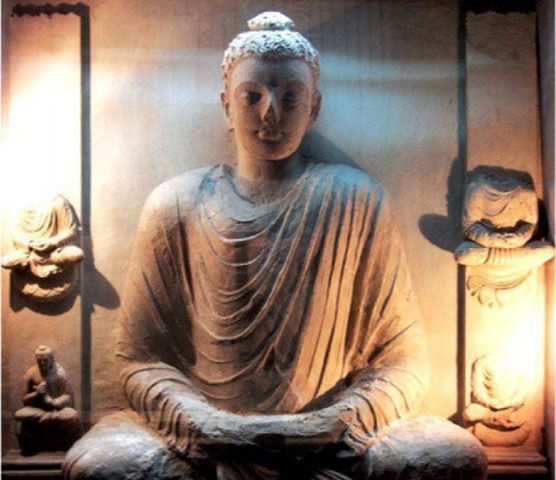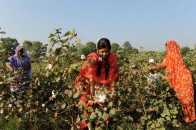History buffs marvel at relics of past
Taxila Museum celebrates World Museums Day; hosts dignitaries & student

It is often said that nations which fail to learn from their past cannot hope to have a prosperous future and throughout history, museums have played a crucial role in safeguarding the artefacts and relics unearthed through archaeological excavations, thus passing on key elements of history to the next generation.
In recognition of this, May 18 is celebrated as World Museums Day, a tradition that began in 1977 to emphasise the importance of museums in preserving cultural heritage and educating the public.
A ceremony at the Taxila Museum marked this global observance. The event saw the participation of delegations, including directors from the Asian Development Bank, who visited the museum. A drawing competition for students was also organised as part of the celebrations. The dual purpose of this day is to educate people worldwide about their cultural heritage and to raise awareness about the necessity of preserving historical artefacts.
Founded in 1928 by Sir John Marshall, the Taxila Museum holds a vast collection of artefacts from the ancient Gandhara civilisation. The museum's director, Humaira Naz, emphasised the significance of Museum Day.
Speaking to The Express Tribune, she noted that the event aims to preserve historical and cultural heritage at a public level while fostering continuous study and appreciation. “Museums not only house artistic creations, scientific specimens, and historical artefacts but also serve as repositories of objects meant for future generations' education and awareness.”
Naz highlighted a notable increase in tourist visits to the Taxila Museum and nearby archaeological sites over the past two decades. Thousands of religious tourists from countries like Sri Lanka, Bhutan, Nepal, Thailand, and Korea have visited Taxila, enhancing Pakistan's foreign exchange earnings and showcasing a positive image of the country.
She said the museum staff is dedicated to providing information about the history of Buddhism and the Gandhara civilisation to visitors, ensuring a comprehensive understanding and appreciation of these ancient cultures.
Abdul Aziz, a participant from Mansehra, praised the professional preservation of the museum's artefacts. He marvelled at the meticulous display of objects like Buddha's teeth, archaeological tools, women's jewellery, ancient coins, and stone inscriptions depicting Buddha's life story.
He noted the significance of the Bodhi tree planted in the museum, which holds its own historical importance. Aziz remarked that his visit significantly enriched his knowledge of ancient history.
Malik Aftab, another guest at the International Museum Day event, lauded the Department of Archaeology’s efforts in securing the archaeological sites in and around Taxila. He pointed out that such initiatives not only foster children's interest in history but also promote tourism, enhancing Pakistan's global image.
The event featured a special desk providing information about preserved antiquities, free study books, and various food stalls, creating an engaging and informative experience for attendees.
Published in The Express Tribune, May 20th, 2024.


















COMMENTS
Comments are moderated and generally will be posted if they are on-topic and not abusive.
For more information, please see our Comments FAQ